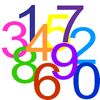Skip over navigation

En-counters
Counters in the Middle
Arranging Cubes
What Shape?


Or search by topic
Number and algebra
Geometry and measure
Probability and statistics
Working mathematically
Advanced mathematics
For younger learners
Getting Better at Group Work

Getting Better at Group Work
Working on a problem in a group gives you chance to discuss your ideas and further your thinking. Three or four brains are usually better than one! These activities will help you improve your group-working skills.
En-counters Age 5 to 7Challenge Level 


Age 5 to 7
Challenge Level 





This task requires learners to explain and help others, asking and answering questions.
Counters in the Middle Age 7 to 11Challenge Level 


Age 7 to 11
Challenge Level 





This task depends on groups working collaboratively, discussing and reasoning to agree a final product.
Arranging Cubes Age 7 to 11Challenge Level 


Age 7 to 11
Challenge Level 





A task which depends on members of the group working collaboratively to reach a single goal.
What Shape? Age 7 to 14Challenge Level 


Age 7 to 14
Challenge Level 





This task develops spatial reasoning skills. By framing and asking questions a member of the team has to find out what mathematical object they have chosen.
You may also like
Digging Into Geometry
Dig deeply into geometrical ideas by having a go at the tasks in this Primary student feature.
More Playing with Numbers Upper Primary
More resources to support understanding multiplication and division through playing with numbers

